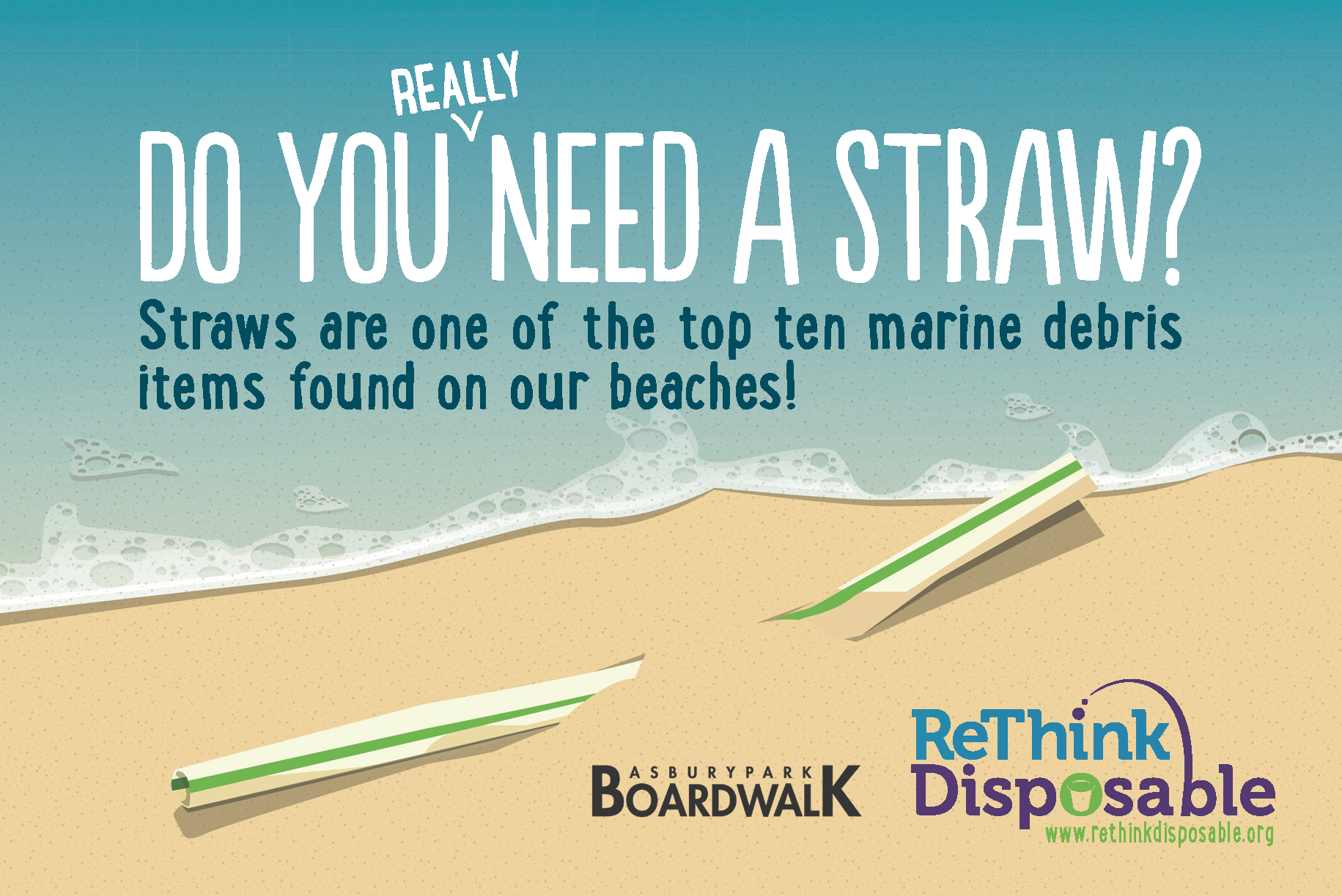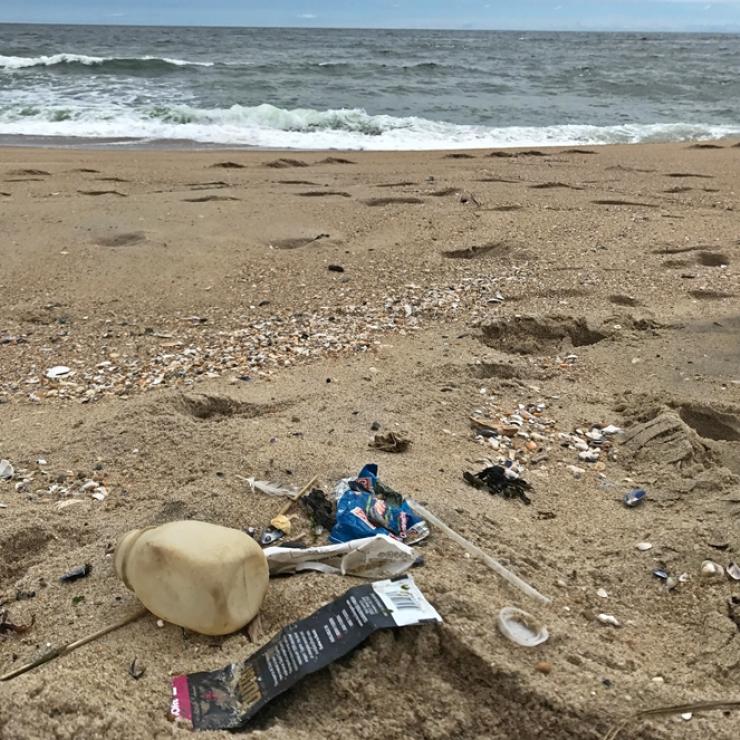
Every day in the U.S., people use 500 million straws a day - enough to circle to planet more than two-and-a-half times! Straws are now one of the top 10 marine debris items found on our beaches. And by 2050, there will be more plastic than fish in the ocean.
So, what do we do about it?
An easy step is to simply not use straws. When ordering your drink at an establishment, simply say, "no straw please, thank you," at the end of your order and encourage your friends and family to do the same. If you really love straws, you can bring your own reusable stainless steel straw, which are available at places like Target and Amazon.
Due to its toxicity, plastic straws may not be something you want in your drink regardless. They are made of a petroleum byproduct called polypropylene mixed with colorants and plasticizers and don't biodegrade naturally in the environment. They are also nearly impossible to recycle, so nobody really bothers. Some are incinerated, which releases toxic chemicals into the air, but most end up in the ground, where they will hang around for an estimated 400 years and leach chemicals. That means that every straw ever used still exists on this planet.
You can also simply ask your local food businesses to stop using them. Clean Water Action has been spearheading our Rethink DisposableTM program in New Jersey. This program has a proven successful track record working with restaurants and institutions to voluntarily reduce waste caused by single-use disposables (SUDs), such as plastic straws, cutlery, plates, water bottles and foam take out containers. In doing so, they have reduced their environmental footprint and cost of waste disposal and supply purchases, while increasing customer satisfaction and demand for greener-conscious restaurants.
In partnership with the Asbury Park Boardwalk, we are launching a "Straws by Request" program this Memorial Day Weekend in Asbury Park, NJ. Participating establishments include Asbury Oyster Bar, The Anchor's Bend, Beach Bar and Wonder Bar. Drinking straws will be given to customers only by request. Look for the signage and educational postcards located at both the entrance, tabletops and the bars. Clean Water Action and the Asbury Park Boardwalk encourage all customers to participate.
We are excited that the Asbury Park Boardwalk and its participating restaurants have chosen to be part of the solution to marine debris, local litter, and storm water pollution. Be sure to say thank you to the restaurant staff for implementing the program and encourage them to do more to reduce single-use throwaways. Through this program, we can help prevent plastic waste on our beaches and get everyone to think twice about whether they need a straw to enjoy their cool drink at the Jersey Shore. We hope Rethink Disposable will be contagious, not just in Asbury Park, but in all Jersey Shore towns.
Stop Waste Before It Starts

Many people forget that reduce and reuse come before recycling in the 3Rs of waste management (Reduce, Reuse, and Recycle). While recycling is certainly important, there is often too much focus on diverting single-use disposables from the landfill by recycling or composting instead of stopping this waste before it starts. These materials are resource intensive to produce, manufacture and recycle – overall packaging and single-use products represent an unsustainable use of precious resources (oil, trees, energy, water).
As reliance on single-use disposables has increased, recycling rates have not been able to keep up. In the U.S., 2.4 million tons of plastic were recycled in 2010, which sounds great until you realize that that’s only 8 percent of the plastic generated.
Rethink Disposable
If you are a restaurant, contact us to find out more about Rethink Disposable, a free technical assistance program that helps food businesses implement best practices to reduce waste and cut costs by minimizing disposable product usage. Whether you are a caterer, a mobile food vendor, or a restaurant, Rethink Disposable can:
- Make recommendations to help your business reduce waste from disposable packaging
- Purchase some reusable products to help you implement the recommendations (based on available funding)
- Measure and report back to you the amount of waste you reduce and your annual cost savings
- Recognize and promote your business within the community
If you are an individual, there are easy ways to reduce your disposables footprint such as saying no to straws and bringing your own shopping bag, reusable water bottle, food container and utensils, and more. Join the Reuse Revolution - take the pledge today!
The Rethink Disposable TM program in New Jersey is funded by an agreement awarded by the U.S. Environmental Protection Agency (EPA) to the New England Interstate Water Pollution Control Commission.


